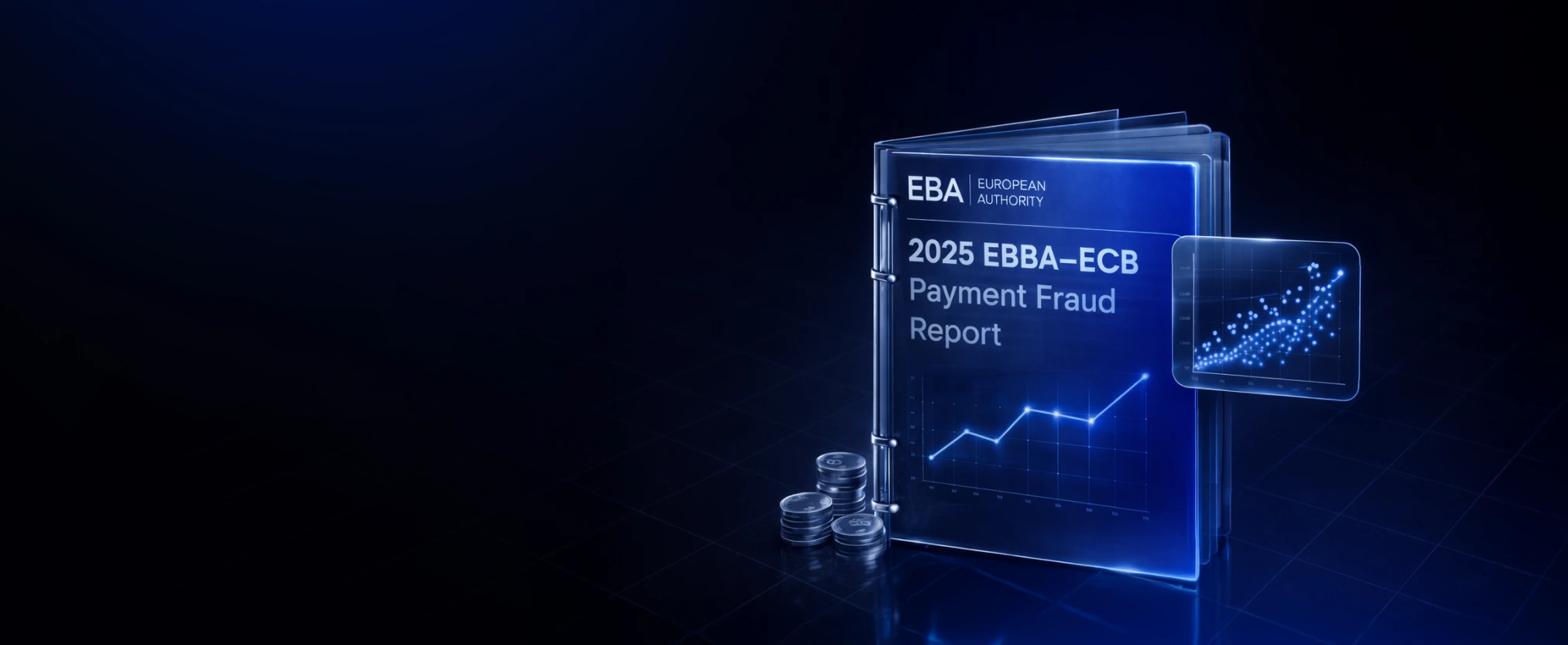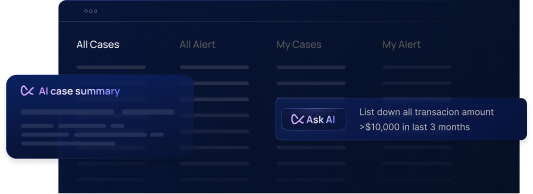Understanding Sanctions and Watchlist Screening
With ongoing geopolitical tensions and financial crime, sanctions are a big part of what's going on in the world. Different governments and organizations, including the European Union (EU), the Office of Foreign Assets Control (OFAC), and the United Nations (UN), have imposed sanctions on entities, countries, individuals, and other groups that have been involved in or are suspected of engaging in illegal activities. Therefore, organizations with global operations must learn more about sanctions in order to keep up with the latest changes. This means they must review their own financial data as well as the data of their business relationships on a regular basis in order to detect and prevent any potential violations.
Financial institutions are required by law to investigate potential violations in their customer records and transaction processes.
As a result, in order to comply with the applicable sanctions regulations, appropriate screening programs must be implemented. There is no "one-size-fits-all" system for sanction screening that is appropriate for all organizations. Rather, criteria such as the nature of the business and the jurisdictions in which it operates will determine the nature and scope of a sanctions compliance program.
What are sanctions?
Sanctions are a type of economic pressure used by countries and international organizations to defend national security interests and international law against hostile actions or threats to international peace and security.
Sanctions may be imposed for a variety of reasons, including anti-money laundering (AML), financial crimes, human rights violations, terrorism, invasion, and weapons distribution.
Sanctions can take many forms, but the most common are those that restrict or prohibit trade with a country or entity.
Sanctions can have a significant impact on businesses, particularly those that rely heavily on foreign trade. They have the potential to disrupt supply chains and make doing business with specific countries difficult, if not impossible.
What is a sanctions list?
Sanctions lists collect information about the sanctioned individuals, states, groups, countries, and legal entities. The OFAC, HM Treasury, UN, and EU are some of the organizations and governments that make the lists. Sanction lists are created with the goal of reducing financial crime and risk by identifying those who engage in illegal activities. You can detect unwanted business parties and prevent doing business with them by screening your reference or transactional data against sanctions lists.
Relevant sanctions screening lists
The relevant sanctions screening lists are determined by the organization's location and type. In the United States, for example, the Office of Foreign Assets Control (OFAC) enforces sanctions screening, with large fines imposed when organizations fail to meet the standards. The Office of Financial Sanctions Implementation in the United Kingdom makes specific recommendations for certain businesses.
Here's a rundown of the most commonly used sanction screening lists:
- OFAC sanctions list: The OFAC Sanctions list governs all US citizens, companies, and entities that use US goods. They also apply to entities with a parent company, subsidiary, supplier, or other affiliation in the United States, as well as entities with a local representative in the United States.
- HM Treasury sanctions list: The UK government compiles the HM Treasury sanctions list, which applies to all individuals and legal entities residing or conducting business on UK territory. Enforcing implementations is the responsibility of the Office of Financial Sanctions Implementation.
- UN Security Council consolidated list: All UN member countries are represented on the United Nations Security Council Consolidated List. This means that all financial institutions must adhere to UN sanctions as part of their anti-money laundering (AML) and counter-terrorism financing (CTF) programs.
- EU Consolidated list of sanctions: The EU's consolidated list of sanctions applies to all entities registered in an EU member state, as well as all EU citizens. The list contains three elements: sanctions imposed by the EU, sanctions imposed by the UN Security Council, and UN sanctions reinforced by the EU.
- Private lists: Most businesses have their own private lists, either whitelists or blacklists, against which they screen transactions. Companies or other business parties who are known to the financial institution and have already gone through all KYC steps are often included on whitelists. Employee information, known fake identities or accounts, or any other individuals that organizations wish to avoid money transfers to could all be included on blacklists.
What is sanctions screening?
Sanctions screening is a method of detecting and preventing financial crime to assist businesses in reducing their financial risk exposure. More specifically, it compares an organization's own records to sanctions lists to check if there are any overlaps, indicating that the records include sanctioned parties to avoid doing business with.
Although sanctions screening appears to be straightforward, it can become complex when dealing with larger data sets that frequently contain errors, missing data, and false positives. As a result, finance teams frequently spend considerable time manually comprehending and analyzing some of the screening results.
One of the primary reasons for implementing sanctions screening is to ensure compliance with local or international governments while also minimizing risk by identifying potentially risky business counterparties early on. Organizations use sanction screening as part of a larger risk-based approach. It is seen as an important step in processes like know your customer (KYC), anti-money laundering (AML), and countering terrorist financing (CTF).
Why is sanctions screening important?
Governments and international organizations frequently take swift action to punish companies that collaborate with a sanctioned third party (legal entity or individual). Organizations should embrace sanctions screening for various reasons.
- Compliance: To remain compliant, some regulatory bodies and financial institutions require sanctions screening. The type of regulations that apply depends on the jurisdictions in which the financial institution is located. Organizations that are not compliant may face large penalties or fines in various situations.
- Risk: Sanctions can pose financial risks for companies when current business partners or customers are sanctioned. Moreover, by using sanctions screening, financial institutions can lower their risk because it enables them to detect and prevent sanctioned parties whom they should not do business with.
- Fraud: Sanctions screening can help detect fraudulent transactions when sanctions lists include fraudulent counterparty data that show similarities. Sometimes companies also use private blacklists that include sanctioned beneficiaries suspected of fraud.
- Anti-money laundering (AML): It is essential to stay compliant with AML regulations by screening against sanctions lists, politically exposed persons, and other data.
- Counter-terrorism financing (CTF): CFT obligations frequently coexist with AML regulations. It requires organizations to conduct sanctions screening in order to avoid terrorist financing. In some jurisdictions, failure to do so can result in sanctions.
Some best practices for sanctions screening
Sanctions constantly evolve, and keeping up with the latest changes can be difficult. Therefore, ensuring compliance with sanctions is a complex and critical challenge for financial institutions.
- Check which sanctions screening requirements are in effect in your jurisdictions and ensure that you follow them.
- Conduct regular sanctions screening to keep up to date on the latest changes, including newly sanctioned parties.
- Know your customers and analyze your customer data, supply chain, and financial transactions. Screen all parties involved in a transaction, including the recipient, sender, and any third parties.
- Check for matches against known sanctions lists and watchlists.
- Conduct transaction screening. Examine the transaction type, the country or region, and the parties involved. Transaction monitoring involving Iran or North Korea, for example, is considered high risk.
- Create a central database with various criteria to search, and maintain separate files for each data type, such as customer names, addresses, and ID numbers.
- Data formats should match the sanctions screening lists to ensure a smooth screening process and a reliable outcome. This will also reduce the number of false positives generated.
- Consolidate data and screening processes whenever possible to save time and resources. The more systems you use, the more complex it becomes.
Transaction monitoring and sanctions screening are connected
Although transaction monitoring typically refers to the process of monitoring customer transactions in real-time and/or post-time to notice irregularities, it can be combined with sanctions screening to verify customer identities and continuously monitor their transactions.
This is known as "transaction screening," and the purpose is to identify risk in senders and beneficiaries, as well as other elements of a transaction before it becomes a compliance issue. Transaction screening essentially monitors the senders and receivers of funds to ensure that they are not being processed on behalf of a sanctioned entity.
One of the best ways to do this is to screen and analyze as much data as possible to make decisions better and easier. In today's digital world, Flagright's automatic transaction monitoring tool can be used to efficiently accomplish this.
Flagright provides fintechs with full-time, 360-degree automated coverage through its advanced watchlist screening solution, making transaction monitoring and customer screening faster, simpler, and more accurate.
Improve your sanctions screening with Flagright
The impact of sanctions lists on businesses can be severe. To avoid potential penalties and fines, it is important that your organization has an effective sanctions screening mechanism in place. A reliable AML compliance solution can streamline sanctions screening, ensuring accuracy, efficiency, and full regulatory alignment.
To help you stay on top of compliance with sanction regulations, Flagright offers a variety of products, including real-time transaction monitoring, sanctions, and crypto sanctions screening, bad actor database, dynamic customer risk scoring, KYC & KYB, ID verification, and an automated fintech licensing application process, supporting compliance across crypto and stablecoin environments.
Schedule a free demo here to get started.




.svg)










.webp)










